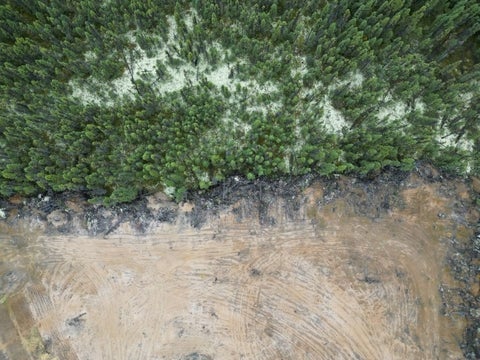Can northern agriculture contribute to global food security?
Food is indispensable for human survival, with its production intricately linked to local weather and regional climate conditions. Factors such as rainfall intensity, frequency, and temperature significantly influence crop yields. Consequently, climate change is anticipated to diminish crop productivity in currently productive southern regions in Canada. Its impacts encompass irregular precipitation patterns, extreme temperatures, wildfires, sea-level rise, hailstorms, and habitat alterations leading to biodiversity loss. The effects of climate change are expected to escalate if temperatures surpass 2 ⁰C above pre-industrial levels, prompting the Intergovernmental Panel on Climate Change (IPCC) to set the acceptable temperature increase at 1.5 ⁰C. Despite the forecasted decline in food production in temperate and tropical latitudes due to climate change, there is potential for crop cultivation to shift northward to the boreal and circumpolar regions. Increasing ambient temperatures and a prolonged growing season in the boreal region serve as catalysts for adopting sustainable agricultural production.
To reverse the ongoing trend of food imports to boreal (northern) regions and ensure self-sufficiency and food security, regional governments are implementing policies to promote agriculture. These measures aim to stimulate socio-economic activities, spur economic growth, and facilitate infrastructure development. Moreover, various approaches have already been implemented, including the development of cold-tolerant crop varieties and the adaptation of cropping systems to suit the region's climate. However, despite these efforts, food insecurity in northern regions remains.
However, the northward migration of favorable climates for agricultural production brings with it significant consequences and challenges. One of the primary impacts of cultivating these areas is the rapid release of previously stored organic matter from the soil into the atmosphere as carbon dioxide. This contributes to the exacerbation of climate change and is associated with sporadic precipitation patterns. Additionally, converting natural habitats in the boreal region to agriculture results in biodiversity loss and a decline in the ecological functions of these habitats. Furthermore, soil fertility presents a limitation to fully exploiting the potential of climate change in boreal regions. Reports indicate that the soil in Newfoundland and Labrador is of low quality and lacks essential nutrients necessary for crop production. Therefore, addressing these limitations requires an interdisciplinary research approach that aims to mitigate the challenges associated with converting the boreal region for agricultural production and explores the potential of utilizing available waste production within the region to enrich the soil for improved crop production.

Frontier of the boreal forest, Happy Valley-Goose Bay, NL area

Work in progress on the expansion of agriculture in the boreal region.
Happy Valley-Goose Bay (HVGB), located in central Labrador, is experiencing population growth and climatic changes that have led to a need for local food security and enhanced living standards for its residents. The Soil Ecosystems Dynamics Lab at SERS, University of Waterloo, under the leadership of Dr. Maren Oelbermann, is collaborating with the BioSoil North team at Memorial University of Newfoundland. Together, we are using a multidisciplinary approach to address the challenges of harnessing HVGB's potential for sustainable commercial crop production. Our research focuses on developing sustainable agricultural techniques to enhance soil fertility and crop yields while sequestering carbon and mitigating greenhouse gas emissions. The findings of this research can be applied in other northern regions that will play an important role in ensuring food security in the years to come.
We acknowledge and recognize that the lands on which we research are the ancestral and continued homelands of the Innu and Innuit.
Additional reading:
Altdorff, D., Borchard, N., Young, E. H., Galagedara, L., Sorvali, J., Quideau, S., and Unc, A. (2021). Agriculture in boreal and Arctic regions requires an integrated global approach for research and policy. Agronomy for Sustainable Development, 41(2), 1–13. https://doi.org/10.1007/s13593-021-00676-1
Keske, C. (2021). Boreal Agriculture Cannot Be Sustainable Without Food Sovereignty. Frontiers in Sustainable Food Systems, 5(April), 1–7. https://doi.org/10.3389/fsufs.2021.673675
Price, D. T., Alfaro, R. I., Brown, K. J., Flannigan, M. D., Fleming, R. A., Hogg, E. H., Girardin, M. P., Lakusta, T., Johnston, M., McKenney, D. W., Pedlar, J. H., Stratton, T., Sturrock, R. N., Thompson, I. D., Trofymow, J. A., and Venier, L. A. (2013). Anticipating the consequences of climate change for Canada’s boreal forest ecosystems1. Environmental Reviews, 21(4), 322–365. https://doi.org/10.1139/er-2013-0042
Unc, A., Altdorff, D., Abakumov, E., Adl, S., Baldursson, S., Bechtold, M., Cattani, D. J., Firbank, L. G., Grand, S., Guðjónsdóttir, M., Kallenbach, C., Kedir, A. J., Li, P., McKenzie, D. B., Misra, D., Nagano, H., Neher, D. A., Niemi, J., Oelbermann, M., … Borchard, N. (2021). Expansion of Agriculture in Northern Cold-Climate Regions: A Cross-Sectoral Perspective on Opportunities and Challenges. Frontiers in Sustainable Food Systems, 5(July), 1–11. https://doi.org/10.3389/fsufs.2021.663448